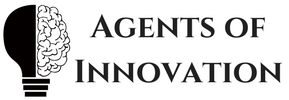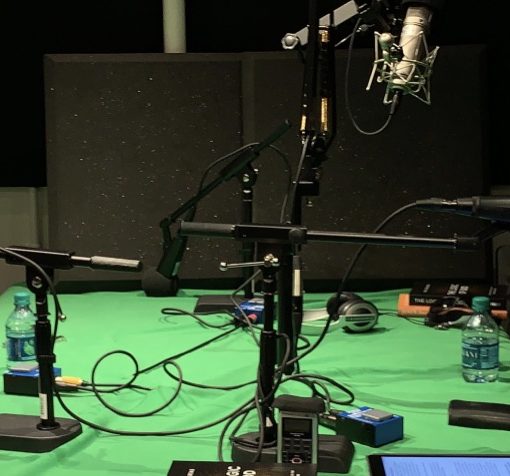Two-thirds of Americans give to charity, but how many people give strategically? That’s what donor-advised funds like DonorsTrust seek to help philanthropists do. In fact, they work to help more Americans view themselves as philanthropists and be strategic with their giving.
On Episode 61 of the Agents of Innovation podcast, we sat down to interview Peter Lipsett, Vice President of DonorsTrust, at their headquarters in Alexandria, Virginia. They are a donor-advised fund that has a commitment to protecting our nation’s constitutional liberties and strengthening civil society through private institutions rather than government programs. Founded in 1999, DonorsTrust is celebrating their 20th anniversary this year.

“Philanthropy is what we do,” said Peter Lipsett. “We’re really high on helping philanthropists, helping people to view themselves as philanthropists. We kind of view it as: a philanthropist is somebody who is going beyond just giving money, but they are actually being strategic about what they give … By using a donor-advised fund, which is the tool that we offer – that is one step towards being a little bit more strategic about your giving.”
DonorsTrust is a resource for philanthropists who want to know more about the organizations that align with their interests. Founded around the idea of donor intent – that donor’s wishes get carried out, in their lifetime and beyond – their niche is in the conservative / libertarian policy space. “We view ourselves as a community foundation,” said Lipsett, “just more bound by an idea instead of a geography.”
The founding story of DonorsTrust was a single donor in California who had money in a Seattle community foundation. He was concerned what they were going to do with his money beyond his lifetime. So, he talked to Kim Dennis, who eventually became the Chairwoman of DonorsTrust. She told him that what he needed is a donor-advised fund that is built for people like him, people of a conservative bent. That’s what led to the creation of DonorsTrust.
“We believe you have to figure out what you care about and then you also need to figure what’s the lever you want to pull to make that change,” said Lipsett.

Donor-advised funds like DonorsTrust share with participating philanthropists ideas of organizations to give to and they help them with the timeline of their giving.
“By really being strategic, you can go farther in what you want to do,” said Lipsett.
Most of the clients of DonorsTrust are individuals who want to concentrate all of their charitable giving in one place. Many use DonorsTrust in place of setting up their own foundation.
There is going to be a $30 trillion wealth transfer happening over the next 30 years. Much of this will come through funds and assets that people leave to the next generation. Many Americans today are thinking about what to do with their giving during those next 30 years and beyond their time on earth.
Lipsett points out that by using a donor-advised fun, you can put all of your philanthropic support together in one donor-advised fund for many years and “create a real legacy for your giving.”
Many in the philanthropic and nonprofit space are familiar with terms like planned giving and estate planning. Peter says planned giving is bigger than giving funds when you’re dead; it’s being strategic about all your giving; and allows you to give more than you otherwise might.
Many philanthropists plan their giving well ahead or for how they want their assets distributed once they pass on. But what happens if the organization(s) they dedicated their funds to goes away? Where should that money go and who decides? That’s where “having a partner that you trust … that really understands what your intent was” is important, says Lipsett. “They know what that next best thing is that still achieves what you want and doesn’t let it drift off to something that would be antithetical to it.”
During the interview, we also discussed the issue of how donors benefit from tax-deductions. Lipsett told us that about two-thirds of Americans give each year. However, even before the tax changes in 2018, only about one-third of people itemized their charitable giving. Lipsett says that the tax-deduction reason “is not even a top five reason that people give; but it can affect when people give, how much they give, and it can affect how they give.”
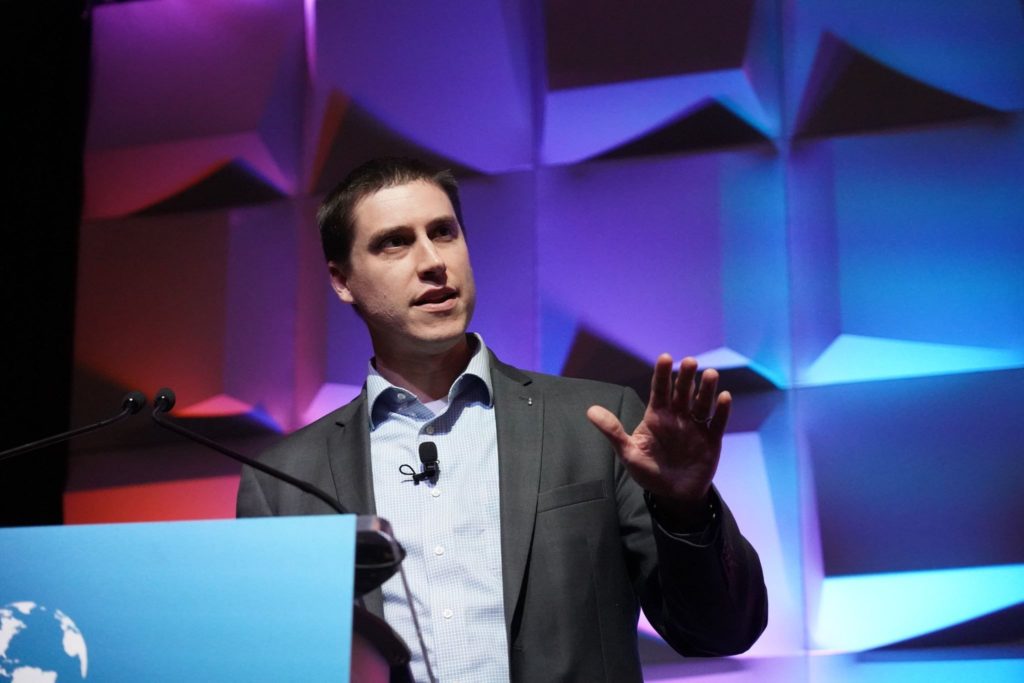
“We wouldn’t have a country without people generously giving – without any tax incentives,” said Lipsett. “The people who were the money behind the Revolutionary War had a cause that they believed in and saw a strategy to invest in where they gave money willingly and freely; there were no tax benefits, they didn’t get a cabinet position because they gave – they gave because they really believed in something, and that’s a tradition that continues in America today, unlike in any other form in any other country.”
What about next generation of philanthropists? Millennial givers actually give more frequently than previous generations. 84% of millennials give of their time or their dollars. While right now, most are small-dollar donors, many will be recipients of that wealth transfer from family members passing on – and others will build their own wealth throughout their lifetime. However, Lipsett mentioned that student loan debt by that generation is a fact that is going to be “a larger issue that is going to weigh down philanthropy for a while.”
But on the positive note, millennials have more vehicles to give than any previous generation – such as through campaigns on Facebook and LinkedIn. “I think it’s really neat that we’re seeing this innovation in fundraising; we’re seeing new platforms; and we’re seeing this millennial generation not bound per se by the 501c3 tax-deductible model,” said Lipsett. In fact, there is a lot of peer-to-peer giving among millennials that is not even counted in philanthropic statistics. “They just do it because it’s the right thing to do. That is very much part of the ethos of this generation and I think the generation behind it.”
To engage millennial givers, DonorsTrust started a program called the Novus Society for under-40 givers. “Novus” is Latin for “new” – the new givers. “The Novus Society is really built to make it easy for folks who have it in their heart, want to learn how to be a better giver, know they are not giving much now … but maybe one day they will … they know that’s a habit they want to build,” said Lipsett. The Novus Society is an opportunity for millennials to join a “donor-advised fund and lower costs, give them the connection to other peers who are thinking like they do and know they want to do this right; get the mentorship from people who have been doing it for a while; and really build their charitable muscles so we can have an impact over time.”
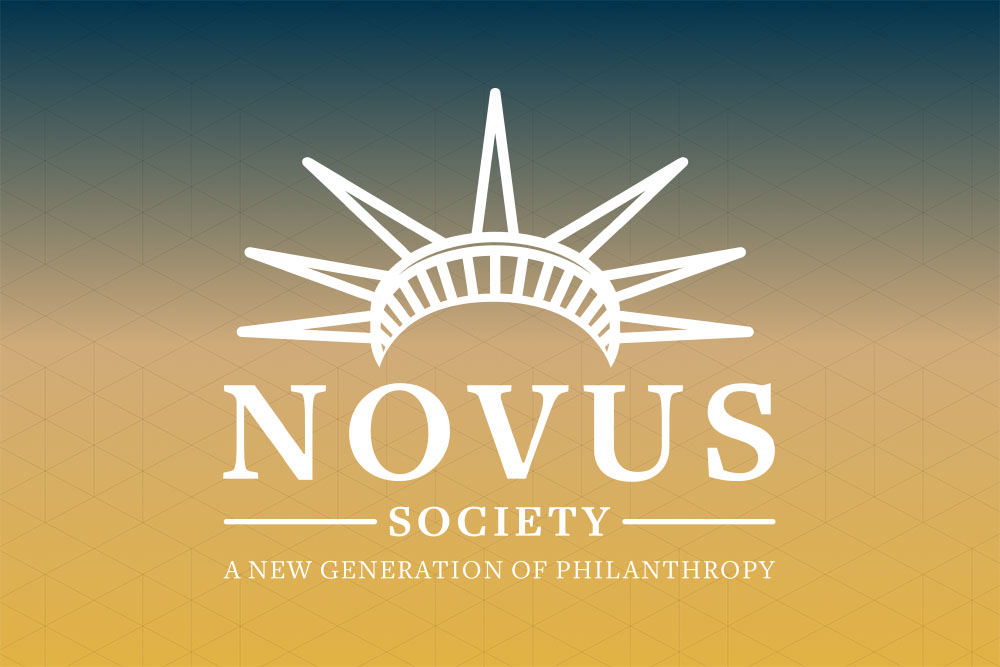
DonorsTrust has also been engaged in protecting donor privacy. In fact, a donor-advised fund is one way for philanthropists who want to remain private about their giving to do so.
“There are a number of threats” to donor privacy, said Lipsett. “It’s a bipartisan problem … particularly politicians who have a beef somewhere, propose this legislation … to find out who’s doing this to me.”
“There are a number of donors who want to be private in their giving for a lot of different reasons: for some people it’s religious, for some people it’s direct mail – they want to stay off those lists; there are ways to give privately and stay off those lists, a donor-advised fund is one of them.’
“People have their own motivations (in their giving) and it’s not really up to anyone else to define what those motivations are,” said Lipsett. “Ultimately, it’s a free speech question.”
A donor-advised fund can also work with smaller nonprofit organizations on more complex things, such as when a donor comes to them wanting to gift real estate or other property, but the small nonprofit doesn’t have the capacity to deal with these sorts of requests.
DonorsTrust is mostly funded by user fees. They charge a 1% fee that covers their overhead and this is the vast majority of what keeps them running. However, as a nonprofit, they also accept donations.
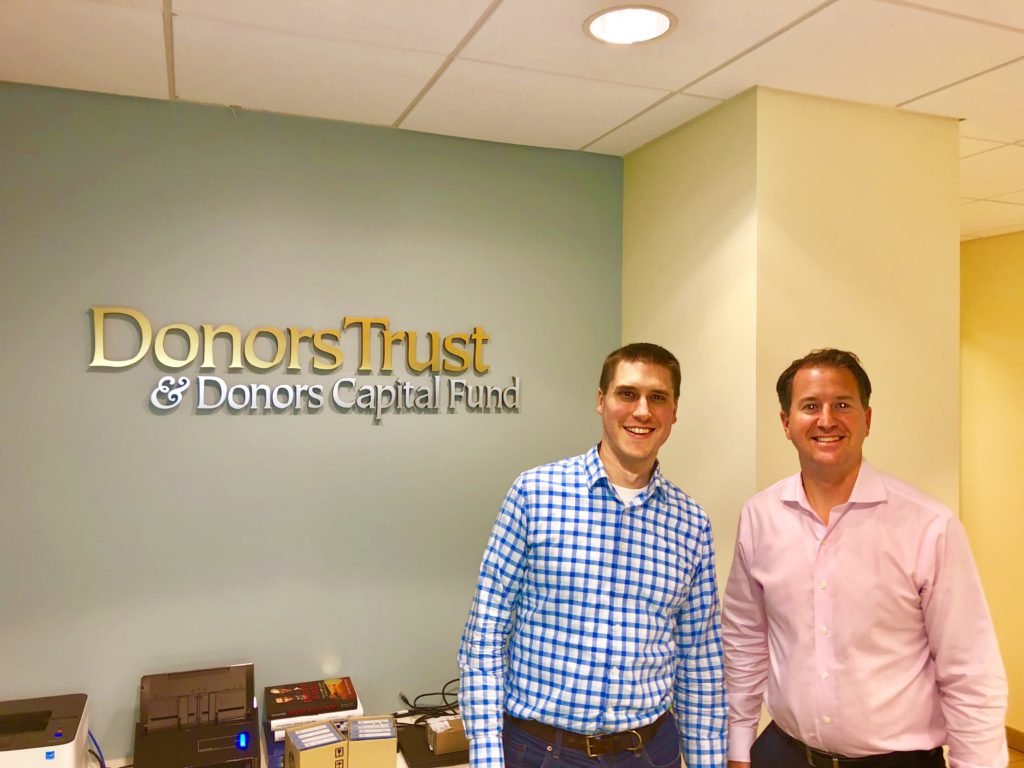
“We think private philanthropy is really important; and that private philanthropy is the best way to solve these public problems we face, with people freely giving, freely engaging, is an awesome power, it’s an awesome feature of our nation, and I think it’s under-appreciated too often,” said Lipsett.
“The power that we have to work together with our resources of time and talents is a phenomenal and uniquely American thing and we’re proud at Donors Trust to help people with that and help to do that in a more strategic, tax-advantaged, smart way.”
To listen to the full interview with Peter Lipsett, tune into Episode 61 of the Agents of Innovation podcast which can be heard on Apple podcasts, Stitcher, or SoundCloud. You can also follow the podcast on Facebook, Instagram, or Twitter. We welcome your comments below and encourage you to write a review on Apple podcasts!
